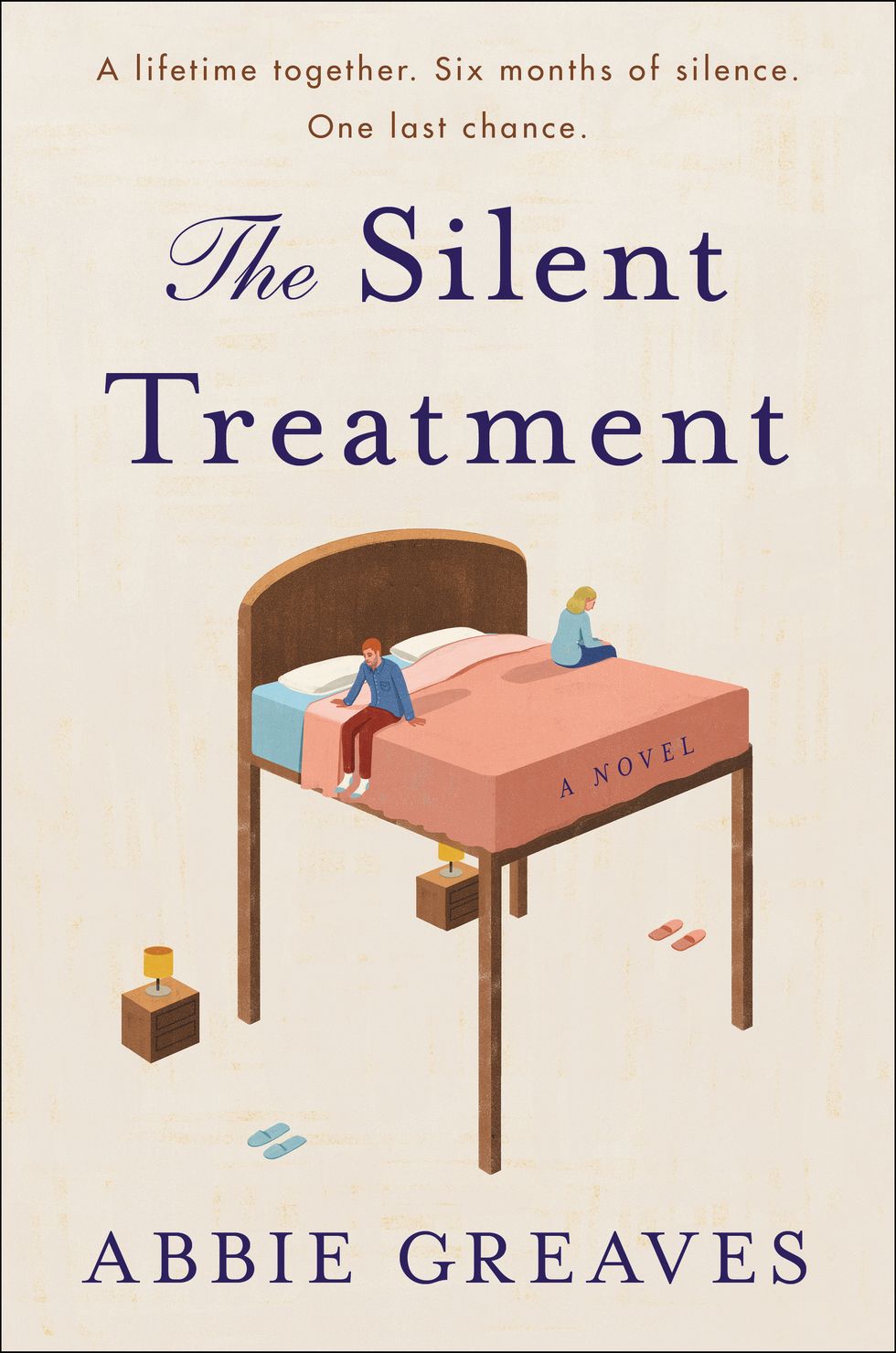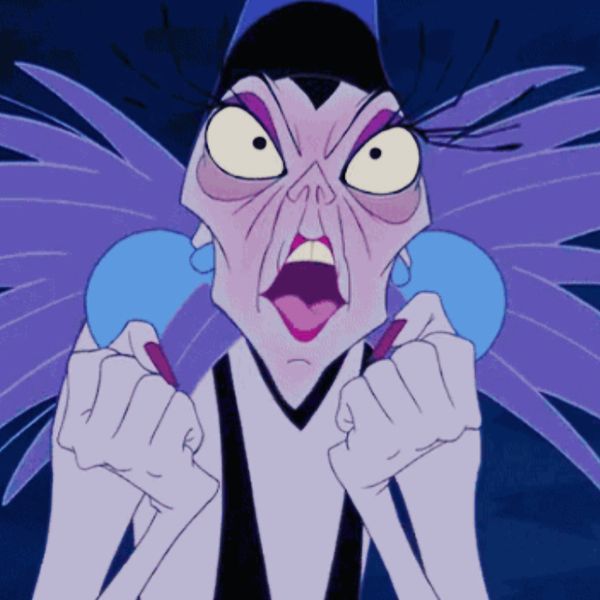I interviwed author Abbie Greaves about her debut novel "The Silent Treatment." With an inside look at her next book, "Anywhere For You."
Why do you think you gravitated towards writing at such a young age?
I've always loved stories – reading them as much as telling them, so writing felt like a natural progression. It also helps that I'm incorrigibly curious about other people's inner lives, their relationships and secrets. I suppose that is what makes a novelist's disposition!
Do you remember the first story you ever wrote? If so, what was it about?
The first one I remember was about a penguin who ran a hairdressing business. It became a trilogy and Debbie, a wonderful local café owner, was kind enough to pin them on the noticeboard next to the counter. We've lost touch, unfortunately, but I'll never forget how special that made me feel.
What were your favourite childhood books?
The Babysitters Club series by Ann M. Martin (I read 99 of them) and anything by Meg Cabot, Malorie Blackman, Jacqueline Wilson or Louise Rennison.
What are you favourite books now?
Some that I have recently loved: The Vanishing Half by Brit Bennett, The Seven Husbands of Evelyn Hugo by Taylor Jenkins Reid, Ask Again Yes by Mary Beth Keane, Silver Sparrow by Tayari Jones.
Do you think your upbringing affected your writing?
I'm grateful that reading was a huge part of my upbringing. My parents are both avid bookworms and that love for literature was so apparent in our household. We'd talk about the books we were reading around the dinner-table and spend hours browsing bookstores and library shelves at the weekends. I believe that every book you read makes you stronger as a writer so that was an early boost, no doubt.
What was it like studying at Cambridge?
For me, it was a brilliant experience. Academically, it was a challenge, but I loved having the opportunity to devote three years of my life to studying books. Personally, I made so many wonderful friends, most of whom I'm in touch with weekly, if not daily! I can't imagine my life without them now.
Why did you decide to go into publishing instead of purely focusing on your own writing?
After I graduated, I wanted to continue my journey with books, but I knew that academia wasn't for me, not at that stage. I was reading a huge amount of contemporary fiction so I felt that I might enjoy publishing. And I did! It was such a privilege to work with so many creative and dedicated authors. It wasn't until I spent a few years seeing how a book makes it from a word doc to the shelves though, that it occurred to me that I might want to try and take my own writing up a gear.
Is it hard to have the confidence to show the world your work?
Yes - this is something I struggle with a lot. It's natural, when you invest so much heart (and so many hours!) into your work because every response will feel personal. I try not to read reviews because I find that my creativity suffers as a result but of course, I'm human so curiosity does sometimes overwhelm my resolve on that front!
What was your inspiration for "The Silent Treatment?"
Initially, it was reading a piece in a subway newspaper about a man in Japan who hadn't spoken to his wife in twenty years. I couldn't stop thinking about that seemingly impossible situation. It made me wonder whether a silence could settle at the heart of any long-term relationship and if so, how?
Describe the feelings you had when you first knew "The Silent Treatment" was getting published.
The day that I found out that publishers were interested in the novel, I must have reeled through a hundred different emotions - joy, relief, gratitude, excitement, the fear that I was dreaming! I'll never forget it. To know that someone has faith in your capabilities and wants to share your work with readers around the world is such a huge privilege.
How do you think "The Silent Treatment" varies from other Romance books?

Readers are probably better placed to answer this than me – but one aspect of the novel that I have been told makes it unique is its focus is on the later stages of love. We see the protagonists, Frank and Maggie, meet in their twenties, but much more time is spent exploring what their relationship looks like four decades later.
Tell us a little about your next book, "Anywhere for You."
It tells the story of Mary O'Connor, a woman who has stood, alone, outside a London train station every evening for the last seven years, holding a sign that bears the words: 'COME HOME JIM'. No-one knows who he is or where he has gone.
" Anywhere for You" varies quite a bit from "The Silent Treatment." Will all your books have different genres?
While the plot of Anywhere for You is very different to that of The Silent Treatment, I would say that there are still important similarities between the two books. At their core, they are both love stories, albeit unusual ones that celebrate the messy reality of our intimate relationships. There is also a secret at the heart of both books – the sort that I hope will keep readers compelled to turn the pages!
If you could create your ideal work environment what would it be?
I can only work in complete silence, so that would be a pre-requisite. Other than that, I'm flexible, in part because I've moved around a lot over the last few years, so can write in pretty much any location. In a dream world, a big desk, an ergonomic chair and close proximity to a kettle and a bulk-bag of teabags would certainly help.
Any advice for aspiring authors?
The size and scope of a novel can be overwhelming, so where possible try and break it down. Aim for 500 words a day, or if that seems too much, then just a paragraph. They all add up. I read once that every published book started as one sentence on a blank page and that image really helped me take the plunge and get started.
My second piece would be to read widely and outside your genre too. I learn so much about plot and pacing from crime novels, setting from historical fiction, voice from memoir.
Name three major things you want your readers should know about you.
1) The Silent Treatment is dedicated to my grandfather who taught me how to read, the greatest gift of all.
2) If it's a Friday night and I'm writing, then it's with a drink in hand. Usually a gin and tonic.
3) My desk is surrounded by pot-plants and I keep a spray bottle next to my laptop which I use to mist them whenever I'm stuck with my writing. Let's just say that they are well-hydrated.
They say books reveal more about the author. What does your book reveal about you?
Probably more than I'm aware it does! The main thing is probably my fascination with other peoples' lives and relationships. I always want to write characters who feel real – in their quirks and habits and mannerisms – and if I have achieved that in The Silent Treatment, then maybe it's my nosiness coming through!
What are your goals as a writer?
To keep writing books that connect with readers for as long as possible. So many of the writers that I most admire are those who I have been reading for years; I love that sense of settling down with a narrative voice that it feels like you have grown to know. It would be a dream to provide that for my readers.
Are you ever plagued with writers’ block? If so, how do you overcome it?
Often. See above re: misting my pot-plants! Other tactics include long walks, long baths and anything else that can momentarily take my mind off the problem in hand. Annoyingly, its often when you are not trying to fix a writing problem, that the solution occurs. If I'm really struggling though, or on a tight deadline, I'll just keep writing because that way I don't feel like I'm stagnating.
Who do you think inspires you most?
Authors like Jojo Moyes, Jodi Picoult, Liane Moriarty, Maggie O'Farrell who deliver extraordinary book after extraordinary book. They make the hard work of writing look easy – and that's such a skill.
What are your other hobbies?
Modern calligraphy. A friend bought me a beginner's nib and ink set and I took to it like a duck to water. I find it very mindful and it also affords me the opportunity to listen to audiobooks as I practice (non-fiction is my favourite). I've volunteered my services for a close friend's wedding next spring too – so I can't afford to slack now!
Do you have a message you want to tell people in the book community?
It's said a lot – but book people are the best people, so smart and passionate and kind. I'm beyond grateful for their support.
What social media can readers find you on?
Twitter: @AbbieGreaves1
Instagram: @abbiegreavesauthor
Newsletter: www.abbiegreaves.com.


















